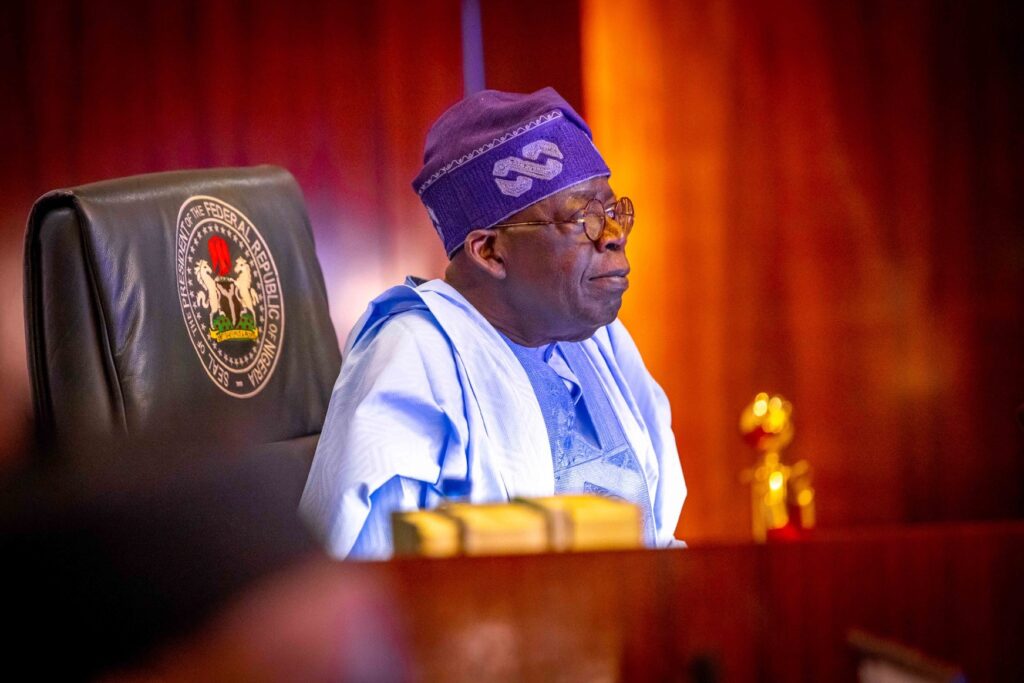- Tinubu’s Policy Advisory Council said the proposed merger of FIRS, Customs, and NIMASA is to enable efficient collection of taxes and levies on behalf of FG.
- The highlight of the council’s proposal includes the removal of fuel subsidy, sale or concession of select government assets, transition to a transparent and unified foreign exchange rate system, deepening tax collection, and optimization of operating expenditure to reduce cost, among others.
- The advisory council also proposed the extension of old naira circulation till December 2024 in order to resolve the cash shortage situation, if required.
President Bola Ahmed Tinubu Policy Advisory Council has proposed the merger of the Federal Inland Revenue Service (FIRS), Nigerian Customs Service (NCS), and the Nigerian Maritime Administration and Safety Agency (NIMASA) into the Nigerian Revenue Service.
The merger of these agencies is to enable an efficient collection of all direct and indirect taxes, as well as levies on behalf of the Federal Government.
The members of the Policy Advisory Council which include Senator Tokunbo Abiru (chair), Dr Yemi Cardoso, Sumaila Zubairu, and Dr Doris Anite, recommended the declaration of a state of emergency on revenue generation in the country.
Some other highlights of the council’s proposal
The National Economy Sub-Committee in its submissions noted that the policy will be aided by the passage of an Emergency Economic Reform Bill which will grant the President special powers to drive the economic reform agenda and support the delivery of sustainable and inclusive economic growth.
The council further outlined the removal of fuel subsidy, sale or concession of select government assets, transition to a transparent and unified foreign exchange rate system, deepening tax collection, and optimization of operating expenditure to reduce cost, as targets to be pursued by the President towards the achievement of some milestones within the first 100 days in office.
The council’s report, which focuses on fiscal and monetary policies, industry, trade, and capital market reforms, emphasised that changes in the Central Bank of Nigeria (CBN) and temporary increases in fiscal circuit breakers such as debt limits would help achieve N1trn Gross Domestic Product growth and over 50 million jobs for citizens in eight years.
CBN, fiscal policies’ reforms
The Policy Advisory Council further proposed that reforms in the CBN will help achieve about $50 billion-$60 billion in external reserves, with a monthly inflow of at least $6 billion-$8 billion from export earnings and other forms of capital inflow, to support the policy at an exchange rate of N500-N600/$.
On fiscal policies to be implemented, the council advised on the need to achieve a domestic refining capacity of two million barrels per day, while creating economic opportunity for the host communities.
They also proposed one-off Personal Income Tax reliefs for low-income earners for up to one year as non-cash palliatives to cushion the effect of fuel subsidy removal.
- The advisory read, “Ramp up production capacity to four million barrels from offshore and onshore assets within four years and grow crude oil revenue and savings into ECA and NSIA.
- “Formalise illegal refineries and encourage modular refineries to create economic opportunity for the host communities.
- “Aggressively grow domestic refining capacity to 2 million barrels per day in the next 8 years, including modular refineries.’’
Sales of FG assets to settle debt
Other fiscal recommendations proposed include, “a policy directive that ensures proceeds from the sale of assets to settle existing FGN debt obligations.
The document states, “List shares of strategic and profitable NNPC subsidiaries. Privatise, concession or sell down FGN’s stake in corporate assets to partners and other investors (possibly with a buyback option) to generate liquidity in the short to medium terms (focus on sub-optimal assets e.g., NNPCL refineries).
- “Leverage blockchain to create and provide access to a Government land registry and regionalise and concession the power transmission grid.”
Further extension of old naira notes to December 2024
Also, the advisory council in the policy document proposed the extension of old naira circulation till December 2024 in order to resolve the cash shortage situation, if required.
It also advised a 5% monthly gradual removal of the old notes and replacement with new notes through the deposit money banks.
- They proposed, “Extend the December 31st, 2023 deadline to December 31st, 2024 (if required), and bring in new notes through the deposit money banks by 5% monthly and take out the old notes through the deposit money banks by the same 5% to solve cash shortage.”
